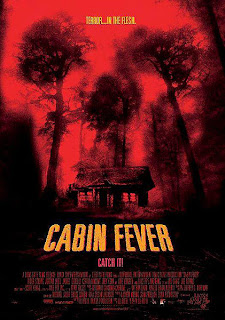"Blue Bayou" moving, deeply personal, and beautifully acted
Justin Chon might be most recognizable for playing one of Bella Swan’s friends in the “Twilight” movies (and a black-out drunk birthday boy in college romp “21 & Over”). But, like his fellow YA franchise alumnus (i.e. Kristen Stewart, Robert Pattison), Chon has pivoted and gone on to make more mature, more interesting, and more challenging projects. Case in point: he writes, directs, and stars in “Blue Bayou,” a moving and deeply personal drama that wields something to say about cultural identity, deportation, and everyone’s version of the American Dream. That makes the film sound like an “Eat Your Vegetables” sort of Issues Movie, but it’s always telling the aching, unvarnished truth.
Chon plays Antonio LeBlanc, a tattoo artist who was born in Korea and now lives in New Orleans. He’s trying to make a better life for his family, especially now that he and his wife Kathy (Alicia Vikander), who works in physical therapy, are expecting their first child together. Antonio has two non-violent felonies on his record (motorcycle theft), which doesn’t help with getting a second job. Helping Kathy raise his stepdaughter Jessie (Sydney Kowalske), he has become more of a father to her than her biological father, Ace (Mark O’Brien), an officer of the law who suddenly shows interest. It just so happens that Ace and his partner, Denny (Emory Cohen), are in the same grocery store as Kathy and her family, and Ace decides to confront Kathy about seeing Jessie. This leads to Denny instigating an altercation and having Antonio thrown in jail. Kathy bails her husband out, but she’s told that the U.S. Immigration and Customers Enforcement have already taken him. Although Antonio was adopted by U.S. citizens, his citizenship was never finalized, so he is deemed illegal. Under the threat of being deported back to Korea, Antonio resorts back to his old ways.
“Where are you from?” an auto-body shop manager asks Antonio during a job interview. It’s a simple question, but a loaded one. After explaining the last name “LeBlanc” by stating he was adopted, Antonio politely tells the interviewer where he’s from. He seems to already know that the manager wants him to say, “Korea,” where Antonio was born. The scene is a pivotal one, proving Antonio’s vulnerability and desperation to sell himself. His stepdaughter even sits quietly throughout the interview, leaning her head on Antonio’s shoulder.
In tackling heavy issues like U.S. immigration policies, Justin Chon does not make Antonio saintly or without flaws. He does what he needs to survive, and he does it for his family. Chon is excellent in the role, conveying the pain of his past and present. Early scenes of Antonio and Jessie are just lovely, even when one grits their teeth at the sight of Jessie as a passenger on his motorcycle during a day of playing hooky from school. Newcomer Kowalske not only resembles her on-screen mother, but she’s such an intuitive little performer, knowing when to be powerfully still and when to just be a playful kid. Alicia Vikander continues to impress, even getting the chance to croon the title song by Linda Ronstadt at a Vietnamese gathering, and she makes one particular moment between Kathy and Antonio, set in the kitchen of their home, so rawly affecting it hardly seems like acting anymore.
Certain contrivances—like Ace overhearing Kathy arguing with Antonio at the grocery store—feel more natural the way Cho has them play out. Another grace note that could have felt wildly mawkish or just feel wedged-in, but turns out to be quite the opposite, is Antonio’s unlikely new friendship with Parker (Linh Dan Pham). They first meet in the waiting room of the hospital, where Jessie realizes she looks similar to her daddy. Parker is a Vietnamese refugee whose health is in decline, and how her platonic friendship with Antonio evolves is just beautifully played throughout.
Louisiana is such a specific milieu, and Justin Chon does impressively convey a keen sense of place with beautiful compositions of swamps surrounded by Spanish moss and sunsets near the Crescent City Connection bridge. If Chon slips a bit into melodrama when it comes to another incident involving Ace’s hateful racist police partner (who makes the ex-husband and Kathy’s disapproving mother look sympathetic by comparison), it still packs more of an effective emotional wallop than if it were just transparent manipulation. Cumulatively, “Blue Bayou” is a lot like that, unfolding with delicate human decency and then devastating defeat that hits one like a ton of bricks.
Grade: B +
Focus Features is releasing “Blue Bayou” (112 min.) in theaters on September 17, 2021.












Comments
Post a Comment